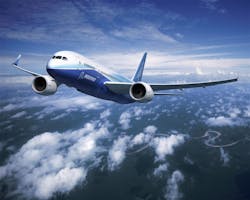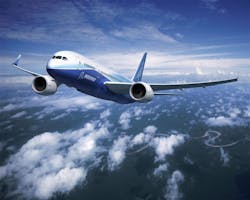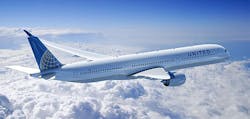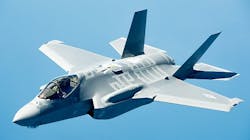Rising passenger travel, fuel-efficient aircraft grow global aerospace and defense industry
NEW YORK, 13 Feb. 2015. Revenue and earnings growth in the commercial aerospace sector will be a driving force behind the global aerospace and defense industry performance in 2015, according to a new report from Deloitte Global.
"Recent lower oil prices will not likely have a dramatic lasting impact on production rate increases for commercial aircraft, given the nine-year backlog the industry enjoys," Captain continues. "Supply chain capacity and capability remain the critical risks that need to be managed in order to maintain production commitments."
The rate of growth for the overall industry has been slowing over the past two years as a result of declines in defense sector spending, affirms the 2015 Global aerospace and defense industry outlook from Deloitte Touche Tohmatsu Limited (Deloitte Global) Manufacturing Industry Group. At the same time, the commercial aerospace sector is likely to enjoy close to an 8 percent growth rate.
Global revenues in the defense sector will likely continue to decrease in 2015 at an estimated 1.3 percent. Yet, defense spending is increasing in several areas of the globe, especially in the United Arab Emirates (UAE), Saudi Arabia, India, South Korea, Japan, China, and Russia, as these countries equip their militaries with modern defense platforms and technologies. The report noted that escalating tensions between nations and damaging cyber-attacks may have an impact on future spending in the sector.
Over the next few years, the defense sector will be challenged in two major ways: how to grow profitably in a declining market and what actions are necessary to cut costs to maintain acceptable financial performance. Successful defense companies are addressing these challenges by branching out into adjacent markets, focusing on foreign military sales, and investing in next generation product development in cyber security, defense electronics, precision strike, unmanned systems, and advanced analytics.
"As we celebrate the 111th anniversary of the Wright Brothers' first powered flight, we are reminded that the industry is still young, yet it has contributed much with game changing technologies," Captain says. "For 2015, technology innovation is the key to advancements in the industry in order to address current markets and to create demand in markets that have yet to be addressed."
View the report at www.deloitte.com/manufacturing.
Deloitte refers to one or more of Deloitte Touche Tohmatsu Limited, a U.K. private company limited by guarantee (DTTL), its network of member firms, and their related entities. DTTL and each of its member firms are legally separate and independent entities. DTTL (also referred to as Deloitte Global) does not provide services to clients.



